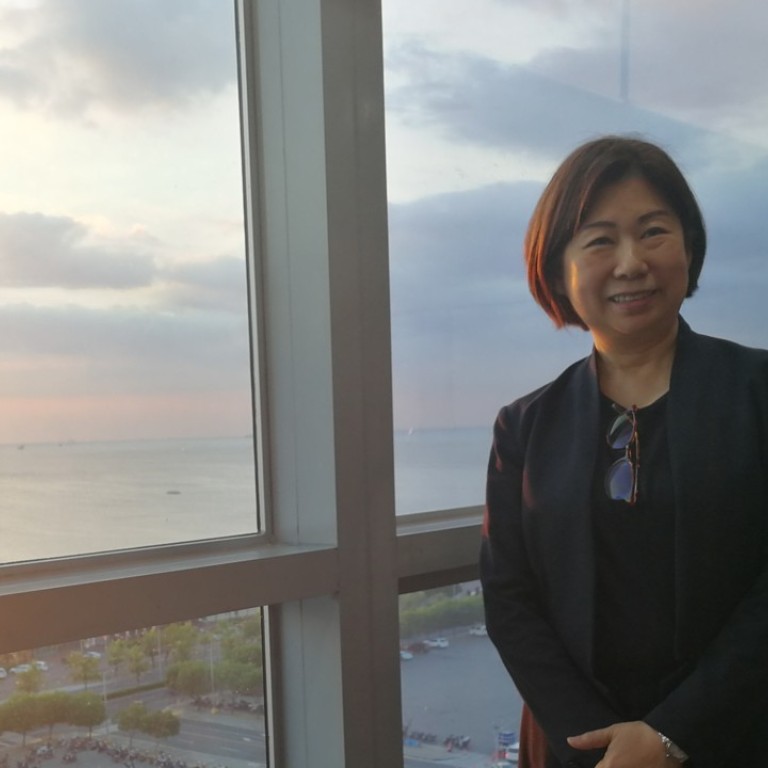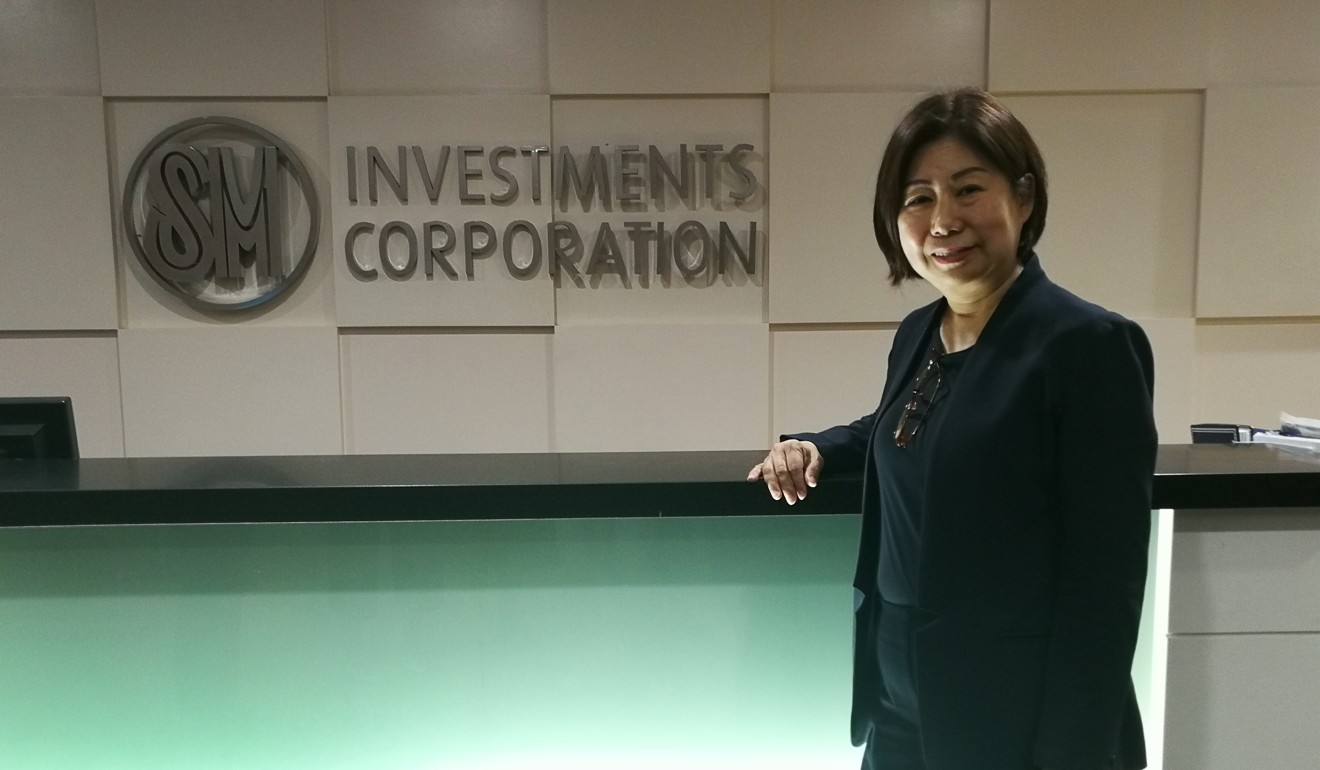
Filipino tycoon says Hong Kong missing out on business opportunities in her country
Teresita Sy extends invite to city’s investors, but many still have reservations about doing business in the Southeast Asian nation
A prominent Filipino businesswoman has said Hong Kong investors have overlooked her country’s potential, urging them to forget any negative perceptions they have about the country and invest.
Teresita Sy, daughter of the country’s richest man, Henry Sy, and vice-chair of SM Investments Corporation – the Philippines’ largest family-owned conglomerate, worth more than 1.1 trillion pesos (US$21.8 billion) – said she would like to invite Hong Kong businesspeople to see the Philippines for themselves, so they would not be deterred by any preconceptions.
But local traders said they have genuine worries about doing business in the archipelago nation.
Jonathan Choi Koon-shum, chairman of the Chinese General Chamber of Commerce (CGCC) in Hong Kong, said what worried his peers most was the domestic and political risks in the Philippines, ranging from the 2010 Manila hostage crisis, during which eight Hong Kong tourists were killed, to the country’s relationship with China.

Speaking from her office with the Manila Bay sunset behind her, Sy said: “Hong Kong [business]people look elsewhere, but not the Philippines.”
By the end of 2017, the Philippines approved a total of 1.63 billion pesos (US$31.4 million) in direct investment from Hong Kong, only 5 per cent of what Japan had poured in and 15 per cent of the total for Taiwan, according to the Philippine Statistics Authority. Those countries are among the top foreign investors in the giant Southeast Asian country.
“If [Hong Kong investors] come with Chinese investors … the Duterte government likes Chinese investment so whenever it’s Chinese, it’s an official priority,” Sy said.
Did Duterte have ulterior motive in apologising for hostage crisis that killed eight Hongkongers?
Choi said Hong Kong investors had three main concerns.
“There used to be many cases when Chinese businessmen were kidnapped. The relationship between China and the Philippines was not that stable. And after the Manila hostage crisis, Hongkongers’ view the Philippines somehow differently,” Choi said during a visit to Manila and Jakarta organised by the Hong Kong Trade Development Council (TDC).
Student activists barred at last minute from Duterte ‘meet and greet’ gathering in Hong Kong
Choi acknowledged that Duterte had been repairing the country’s relationship with China and Hong Kong, which he said was a positive signal for investors.
But he and his colleague Vincent Lo Hong-shui, chairman of the TDC, said the “60-40 rule” – a constitutional provision stipulating that foreign investors cannot hold more than 40 per cent of shares in a Philippine company – made foreign investment in infrastructure “undoable”.
However Sy argued that it was more often the “perception” of the country that deterred Hong Kong investors.
“To establish business here may require something foreigners do not understand easily but if you can get good partners, things will be easier,” Sy said.
The businesswoman also suggested investors look into the domestic consumer market, where the retail business of SM Investments had grown by at least 5 per cent each year for the past 20 years.
And she did have one suggestion for a good Hong Kong export: its food.
“Hong Kong food could be an instant success in the Philippine market … You eat Hong Kong, you think Hong Kong,” Sy said.
“Maybe the Philippines is not so good at communicating what is good in itself … the robust economic development is here, be open and try to feel it first,” Sy told Hong Kong investors.
Edward Yau Tang-wah, Hong Kong’s commerce minister, said the city had signed an Investment Promotion and Protection Agreement with the Association of Southeast Asian Nations, to enhance protection for its outgoing investors.

